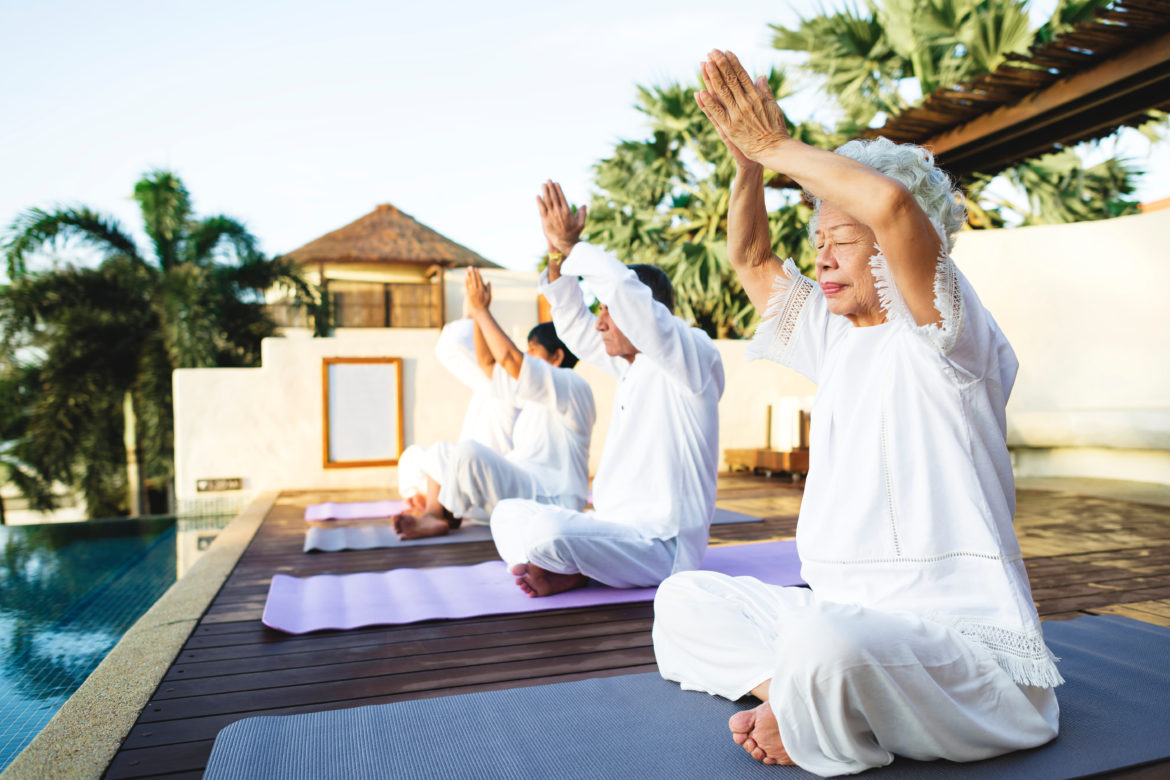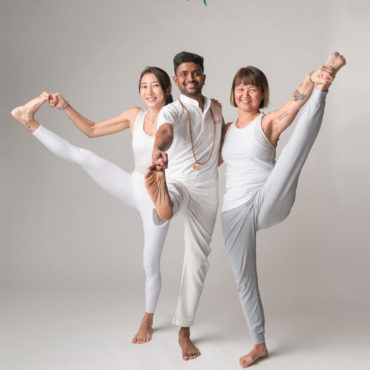Cancer can be a terrifying ordeal for many due to the painful treatment regimens, stress and emotional trauma. During the patient’s journey to cancer recovery, they often experience sleep disturbance, anxiety and fatigue on top of the stress of usual life challenges. Today we share more about yoga for cancer patients and survivors as well as practical breathing exercises that cancer patients can do from the comforts of their home!
Despite numerous improvements and advancements made in cancer treatment, there is a lack of effective symptom management solutions. Even with pharmacological interventions targeting cancer-related fatigue, the effects of these drugs often vary depending on the individual’s condition.
As a form of behavioural intervention, Pranayama (Yogic Breathing Techniques) practice is a great tool that can help ease discomforts that cancer patients and survivors experience – we highly recommend this type of yoga for recovery!
What is Pranayama?
It is common for us to hear about Yoga, but what exactly is Pranayama? Pranayama is the 4th limb of the eight-field path of Yoga, which works with the mind and the organs of respiration. It is both a physical practice and a form of meditation. When broken down, ‘Prana’ can mean life force or breath, and ‘Ayama’ is control or regulation. Hence, Pranayama can be known as the regulation of breath.
The goal of Pranayama is to strengthen the connection between the body and mind as well as promote relaxation and mindfulness. Through controlling the breath, this practice helps supply the body with oxygen while removing toxins, allowing the practitioners to reap physiological healing and health benefits.
How can Pranayama help with Cancer?
While Pranayama cannot cure cancer, it can help patients cope with the symptoms associated with cancer treatment as well as heal the mental-emotional stress they experienced in their cancer journey. It is a safe and effective way to counteract many of the negative physical and emotional effects of cancer.
Benefits of Pranayama for cancer patients
1. Relieve Fatigue
Based on the British Journal of Cancer, fatigue is one of the most prevalent cancer-related symptoms and it often causes the most adverse impact on the patient’s functional abilities and quality of life.
Several studies conducted have shown that an increase in the Pranayama practice is correlated with a decrease in fatigue observed in patients. [1][2]
2. Reduce Stress
Battling cancer does not only affect the physical body but also emotional and mental health. Cancer journeys can be stressful and may cause patients to feel depressed and anxious.
Pranayama can reduce stress levels by supporting the parasympathetic nervous system, activating what is commonly known as the “relaxation response”.
A 2013 study showed that Pranayama can improve one’s perceived level of stress! [3]
3. Improve Sleep
When your body is under constant physical and mental stress, it can keep you from falling asleep and staying asleep. Pranayama can help with insomnia and make it easier for cancer patients to relax at night.
It is possible to feel Pranayama’s effects with just 5 minutes of practice. According to a study, breathing rates and heart rates slowed down within 5 minutes of Bhramari Pranayama (a breathing technique) practice. This calms the body down and prepares cancer patients for restful sleep. [4]
4. Increase Mindfulness
Breathing is something we normally do without giving much thought to it. But when practising Pranayama, it is important for one to be aware of the breath and how it feels. The practise focuses on the present moment, not the past or the future – this is what we mean by mindfulness.
Research has shown, those who practice Pranayama display a higher level of mindfulness in comparison to those who do not. They are also able to regulate their emotions better, showing less signs of aggression. [5]
So let’s get started on the practice!
Today, we will be sharing 3 simple Yogic Breathing exercises that you can do at home to ease symptoms and ailments resulting from cancer or cancer treatments.
For cancer patients and survivors who are unfamiliar with the Pranayama practice, consult your doctor before trying these. As everyone’s condition is different, it is important to seek precautionary advice from a health professional.
Always remember to listen to your body as you do not want to push yourself to the point of pain or excessive discomfort.
Exercise 1: Nadi Shuddhi Pranayama (Alternate Nostril Breathing)
 Benefits: Relax your body and mind, reduce anxiety, induce deeper sleep, and promote overall well-being.
Benefits: Relax your body and mind, reduce anxiety, induce deeper sleep, and promote overall well-being.
How to practice:
1. With a thumb, hold down your right nostril to allow inhalation only through the left. Take a deep breath.
2. Close your left nostril with your ring finger and exhale slowly through the right.
3. In the same position, inhale with your right nostril.
4. Close the right nostril with your thumb and exhale slowly through the left.
5. Repeat this sequence for 10 rounds.
Exercise 2: Bhramari Pranayama (Humming Bee Breath)
 Benefits: Relax your body and mind, reduce anxiety, induce deeper sleep, and promote overall well-being.
Benefits: Relax your body and mind, reduce anxiety, induce deeper sleep, and promote overall well-being.
How to practice:
1. Sit in any comfortable crossed-leg position with back and neck erect.
2. Keep your tongue to the upper palate and close the lips.
3. Close your ears with thumbs and cover eyes with remaining fingers.
4. Inhale deeply and produce the humming bee sound while exhaling from the throat.
5. Continue this practice for 10 rounds.
Exercise 3: Hands In & Out Breathing
 Benefits: Overcome fatigue, make the mind more active to carry on with your day and promote overall well-being
Benefits: Overcome fatigue, make the mind more active to carry on with your day and promote overall well-being
How to practice:
1. Sit with your back erect and lengthen the arms in the front of your body with palms facing each other.
2. With inhalation spread the hands and open the chest, while exhaling bring the hand’s together.
3. Repeat it for 10 rounds.
4. At the last round, after inhalation with hands spread, hold the breath for a few seconds and relax.
We recommend practicing these 3 exercises daily, morning and evening, to enjoy its positive effect on mood, relaxation and sleep. Besides regulating your emotions, yoga can also help with physical strength in cancer patients. However depending on each individual’s body condition a different type yoga will be better suited. A few types of yoga you can look into for cancer patients are Yin yoga and Restorative yoga. It is important to note that every cancer patient has a unique body constitution and they SHOULD ONLY practice if their body can support the movements. If you have other questions about yoga for cancer recovery, write to Jal Yoga!
This article is written by Jal Yoga.
If you are keen to find out more about marrying Traditional Chinese Medicine with Yoga, check out our Partner Jal Yoga.
To learn more about Oriental Remedies Group, visit our homepage or contact us via Whatsapp at +65 8087 0486
Disclaimer:
The content on this page is for informational and educational purposes only. Such medical information may relate to disease, injury, drugs and other treatments, medical devices and/or health products. Medical information does not amount to advice, and if advice is needed an appropriate professional help should be sought. The disclaimer asserts that no warranties or representations are given in respect of the medical information, and that the website operator should not be held liable if a user suffers any injury or loss after relying upon the medical information.


